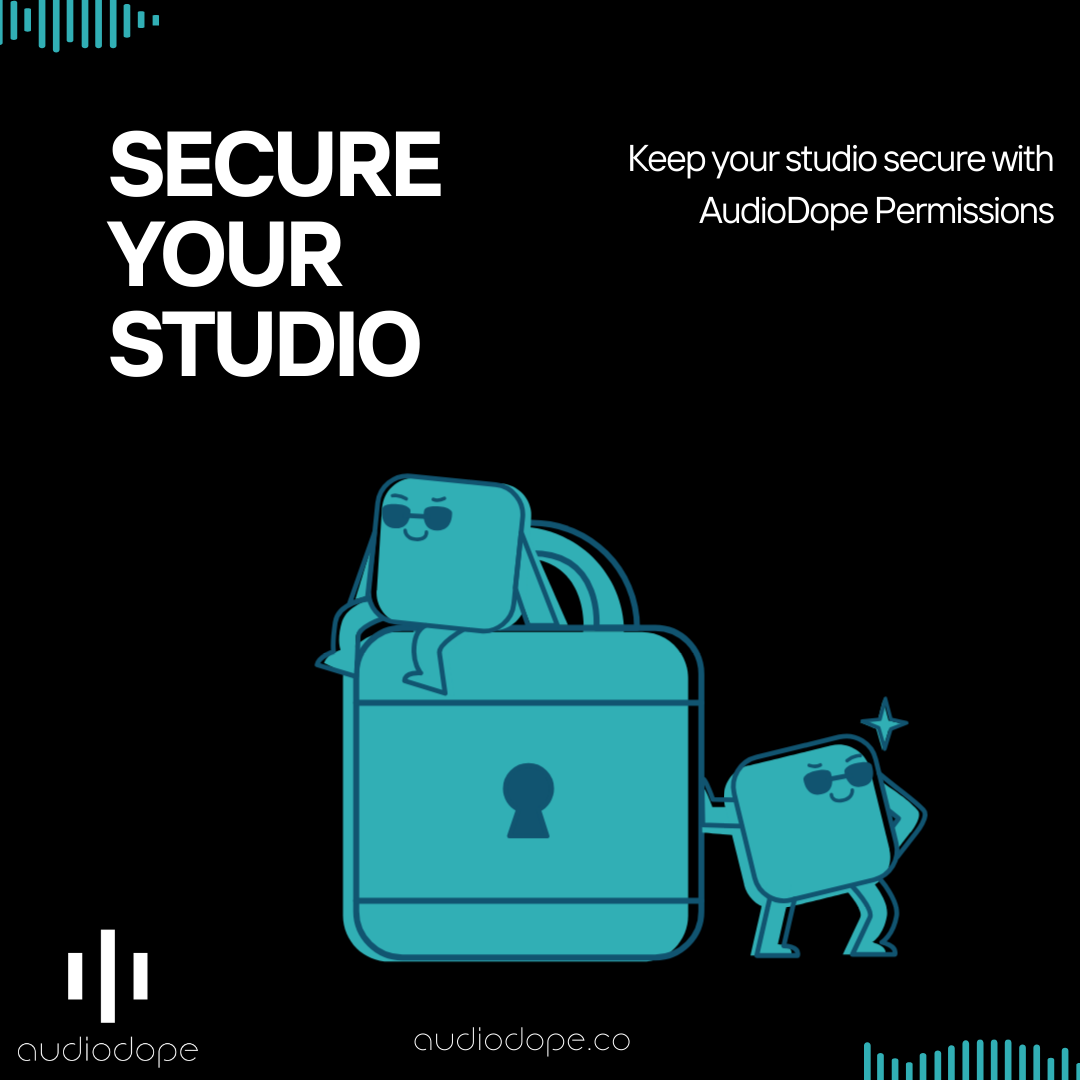Tips on Permission Access in the Recording Studio

Following up on our recent coverage of Studio Staff Management, managing access permissions is a crucial task that often goes overlooked. With so many individuals involved in the recording process and valuable intellectual property at stake, it's essential to have strict controls in place.
From protecting sensitive recordings and preventing unauthorized access to ensuring seamless collaboration among artists, engineers, and producers, we explore the various strategies and technological solutions available.
We understand that every recording studio has its unique challenges, whether it's a small home studio or a large professional facility. By prioritizing access permissions management, studio owners can safeguard their investments, maintain client confidentiality, and create a professional reputation that sets them apart.
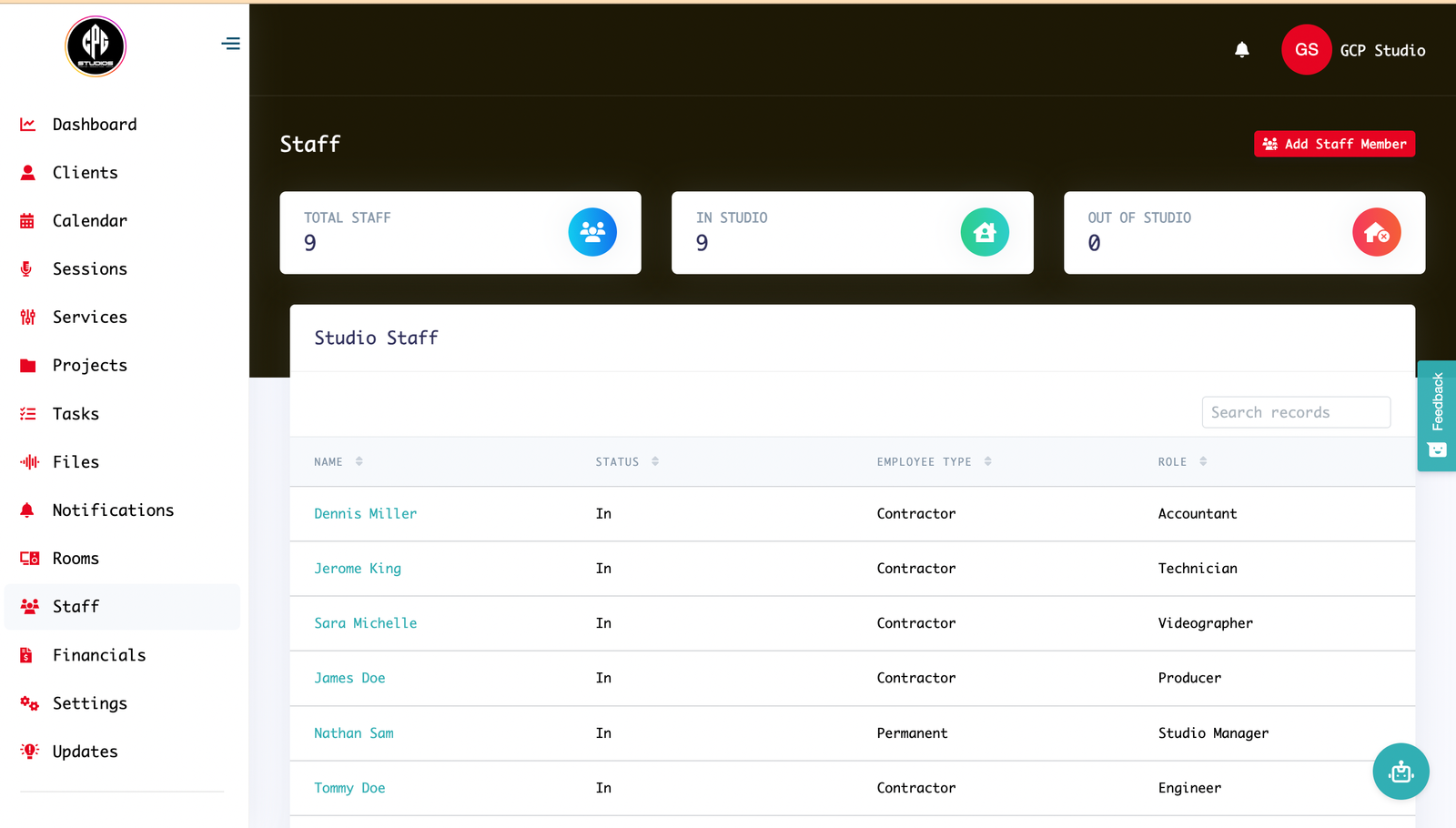
Importance of managing access permissions in the recording studio
In the fast-paced world of recording studios, managing access permissions is often seen as a low priority. However, the reality is that neglecting this crucial task can lead to serious consequences. One of the primary reasons for managing access permissions is to protect sensitive recordings.
Whether it's unreleased music, confidential client projects, or proprietary sound effects, unauthorized access can result in significant financial and reputational damage.
Not only does managing access permissions protect intellectual property, but it also ensures the privacy of artists and clients. In the recording studio, artists often pour their hearts and souls into their work, and it's important to create a safe and secure environment for them to express themselves freely. By implementing strict access controls, studio owners can instill confidence in their clients, knowing that their creative endeavors are protected.
Furthermore, managing access permissions is essential for maintaining a professional reputation. In an industry where trust and discretion are paramount, a recording studio that prioritizes data security and confidentiality gains a competitive edge.
Clients value their privacy, and by demonstrating a commitment to protecting their interests, studios can attract high-profile artists and build long-term relationships.
Creating a culture of access permissions management not only safeguards the studio but also sends a signal to the industry that professionalism and security are taken seriously. By investing time and resources in this aspect of the business, studio owners can differentiate themselves from competitors and establish themselves as industry leaders.
Risks of not properly managing access permissions
The consequences of not properly managing access permissions in the recording studio can be severe. One of the most significant risks is the unauthorized distribution of sensitive recordings. With the rise of digital technology, it has become easier than ever for unauthorized individuals to gain access to valuable intellectual property.
This can lead to leaked tracks, bootlegged albums, and breaches of confidentiality agreements, damaging both the studio's reputation and its relationships with clients.
In addition to the risk of unauthorized distribution, not properly managing access permissions can also result in the loss or theft of valuable recordings. Whether it's a hard drive containing years of work or a master tape of a highly anticipated album, the loss of such assets can be devastating.
Without proper access controls in place, anyone with physical or digital access to the studio can potentially walk away with valuable recordings, resulting in financial loss and irreparable damage to the studio's reputation.
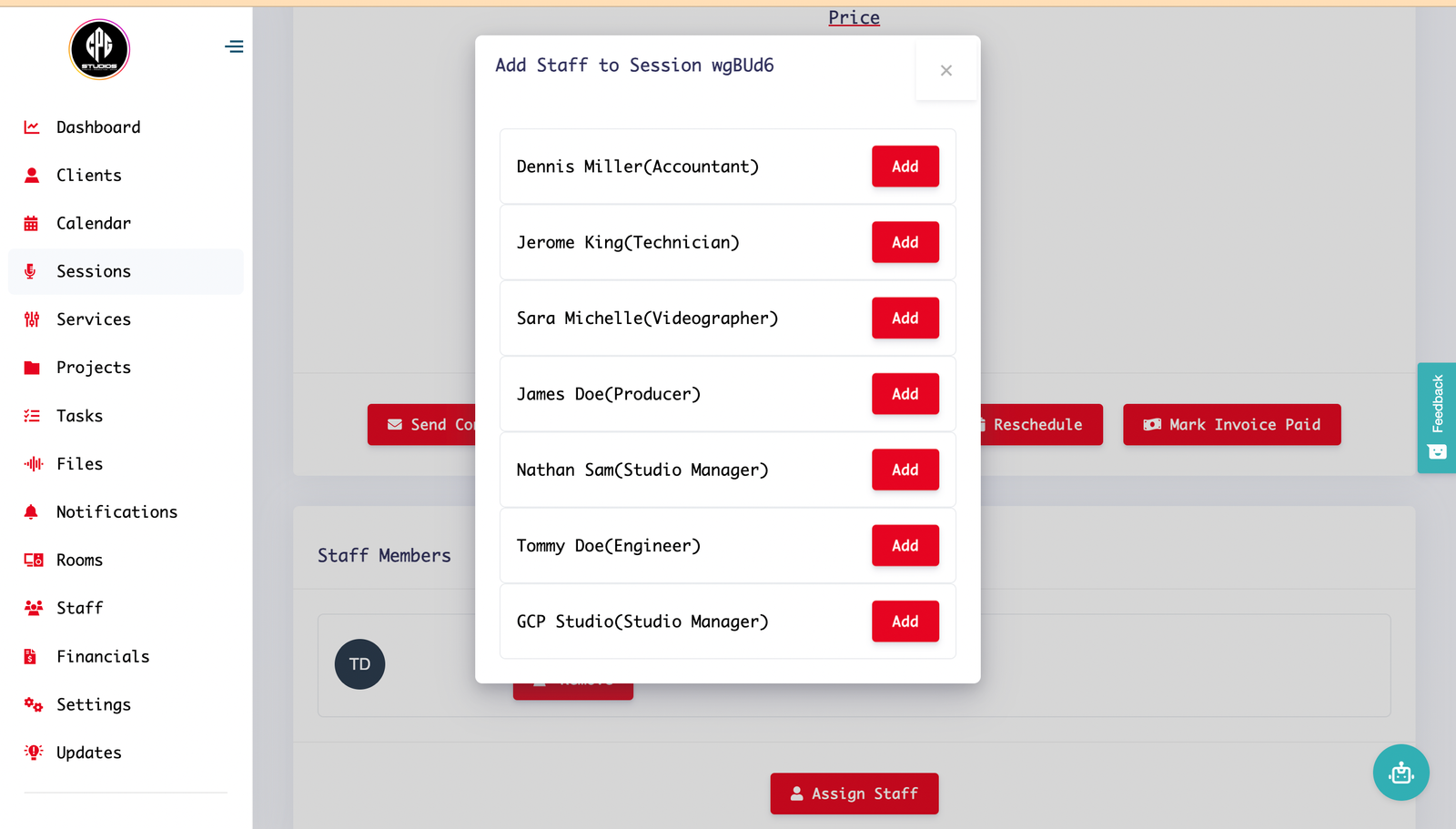
Another risk of neglecting access permissions management is the potential for internal conflicts and disputes. In a collaborative environment like a recording studio, tensions can arise between artists, engineers, and producers.
Without clear access protocols and permissions, disputes over ownership, credit, and access to recordings can quickly escalate, leading to strained relationships, legal battles, and a toxic work environment.
By not properly managing access permissions, recording studios not only expose themselves to financial and reputational risks but also compromise the creative process itself.
A lack of control over who has access to recording equipment, software, and files can result in unauthorized modifications, accidental deletions, or technical issues that disrupt the artistic vision and cause delays in project completion.
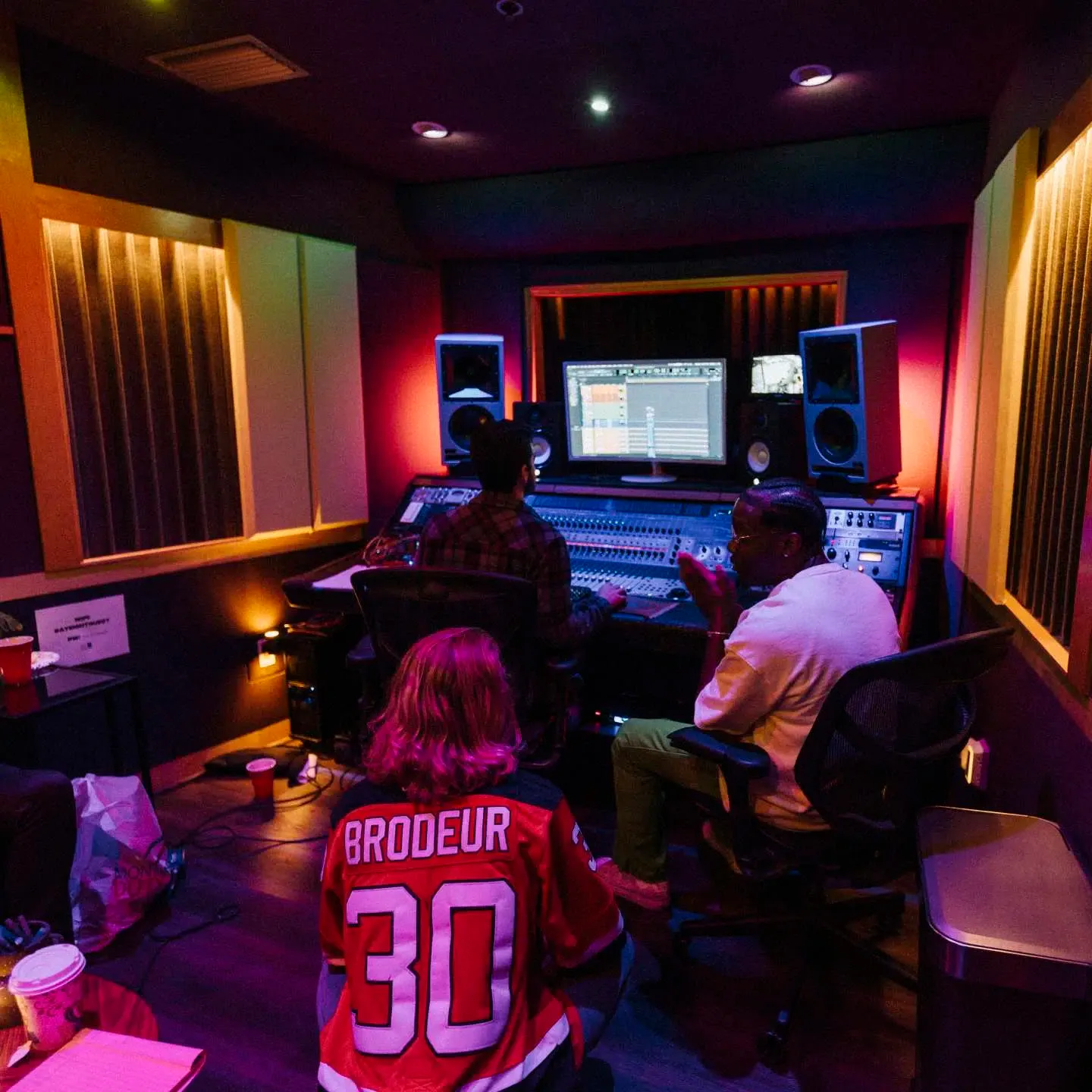
Common access permission issues in the recording studio
In the recording studio, there are several common access permission issues that can compromise the security and efficiency of the environment. One of the primary issues is the lack of a tiered access system.
Without differentiating access levels based on roles and responsibilities, anyone in the studio can potentially access sensitive recordings and equipment, leading to unauthorized modifications, accidental deletions, or even theft.
Another common issue is the failure to implement access control measures. This includes physical access control, such as locking doors and securing storage areas, as well as digital access control, such as password protection, encryption, and multi-factor authentication.
Without these measures in place, unauthorized individuals can easily gain access to valuable recordings, compromising the studio's integrity and confidentiality.
Insufficient training on access permission protocols is another frequent issue in recording studios. Many studio owners assume that their staff understands the importance of access controls and the potential consequences of not following protocols.
However, without proper training, employees may inadvertently compromise security by sharing passwords, leaving doors unlocked, or mishandling sensitive recordings.

By providing comprehensive training on access permission protocols, studios can ensure that everyone understands their roles and responsibilities in maintaining a secure environment.
Monitoring and auditing access permissions is another area where recording studios often fall short. Without regular monitoring and auditing, it's challenging to identify potential security breaches or unauthorized access. By implementing a system that tracks and logs access activities, studio owners can detect any suspicious behavior and take prompt action to mitigate risks.
Finally, many recording studios fail to leverage technology to manage access permissions effectively. From access control systems to cloud-based storage solutions, there are numerous technological tools available that can streamline access management and enhance security.
By embracing technology, studios can automate access control processes, enforce stricter security measures, and ensure that only authorized individuals have access to sensitive recordings and equipment.
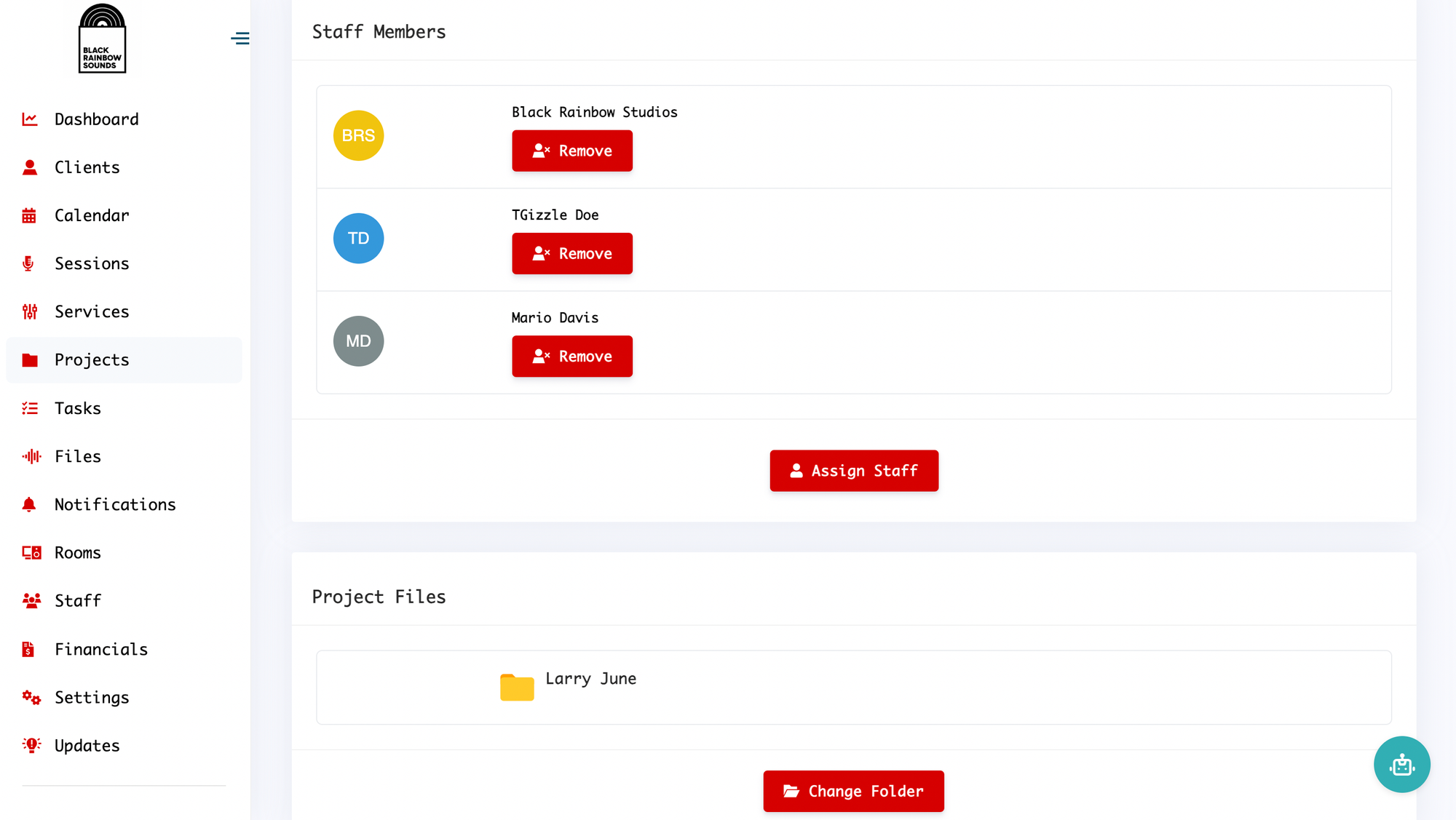
Best practices for managing access permissions
To effectively manage access permissions in the recording studio, it's crucial to adopt best practices that prioritize security without hindering creativity.
One of the first steps is to create a tiered access system that differentiates access levels based on roles and responsibilities. This ensures that only authorized individuals have access to sensitive recordings and equipment, reducing the risk of unauthorized modifications, accidental deletions, or theft.
Implementing access control measures is another essential best practice. This includes both physical and digital access control. Physical access control measures can include installing security cameras, using key cards or biometric systems, and securing storage areas with locks. Digital access control measures can involve password protection, encryption, multi-factor authentication, and regular software updates to address vulnerabilities.
Training staff on access permission protocols is crucial for maintaining a secure environment. By providing comprehensive training, employees will understand the importance of access controls and the potential consequences of not following protocols.
This can include educating staff on password management, physical security measures, and the proper handling of sensitive recordings. Regularly reinforcing these training sessions will ensure that everyone remains vigilant and committed to maintaining a secure recording studio environment.
Monitoring and auditing access permissions is vital for detecting and mitigating potential security breaches. By implementing a system that tracks and logs access activities, studio owners can identify any suspicious behavior and take prompt action. Regularly reviewing access logs, conducting security audits, and addressing any identified vulnerabilities will help maintain a robust access permissions management system.
Leveraging technology is another best practice for managing access permissions effectively. From access control systems to cloud-based storage solutions, there are numerous technological tools available that can streamline access management and enhance security.
By embracing technology, studios can automate access control processes, enforce stricter security measures, and ensure that only authorized individuals have access to sensitive recordings and equipment.
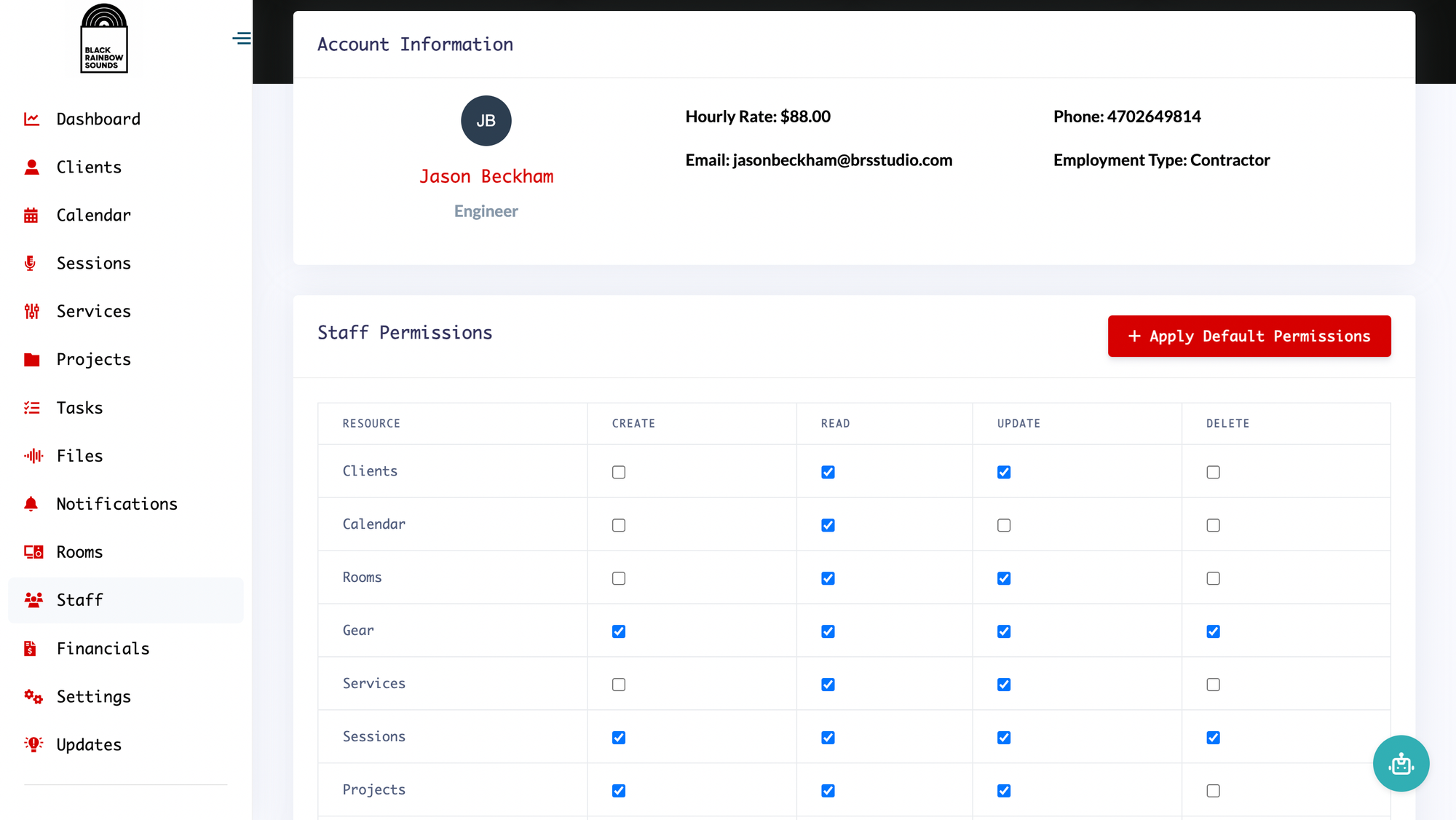
Conclusion: Ensuring a secure and efficient recording studio environment
Managing access permissions in the recording studio is a critical task that should never be overlooked. The risks of not properly managing access permissions can be severe, ranging from unauthorized distribution and theft of valuable recordings to internal conflicts and compromised creative processes.
By implementing best practices such as creating a tiered access system, implementing access control measures, training staff, monitoring and auditing access permissions, and leveraging technology, studio owners can ensure a secure and efficient recording studio environment.
